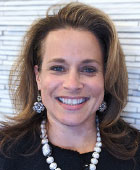Preventing the Slip of Your Scope
Abstract
Be proactive about avoiding situations in which other specialists may be more appropriate to care for your patient.

Have you ever stopped to think about whether you are complying with your scope of practice? Have you come across a situation and wondered if you alone could provide your patient with the best outcome? How about a time when you were uncertain about your obligation to follow through on a patient request to provide a letter or complete a form? Contemplating whether you are staying within your scope can often get overlooked, but it is something to be conscious of because it can lead to risk within your practice. You may believe that nobody intentionally goes outside of one’s scope, but it does happen if one goes down the slippery slope of performing tasks beyond one’s skill set.
What does “scope of practice” mean?
The Federation of State Medical Boards defines “scope of practice” as the activities that a health care practitioner is permitted to perform within a specific profession. It also notes that those activities should be based on appropriate education, training, and experience. Scope of practice is defined under state law and determined by each state’s practice act.
What happens if someone breaks his or her scope of practice?
A violation of scope of practice can result in disciplinary board action, licensure restrictions, loss of licensure, and penalties. The state has the authority to file criminal charges against a person suspected of practicing outside of his or her scope. Along with this, allegations of malpractice can occur for either practicing medicine without a license or practicing outside of one’s scope.
Areas for consideration to decrease risk
Referrals: When health care professionals determine that there is a situation with a patient that is beyond their expertise, a recommendation should be made to either transition the patient to a different level of care/patient setting or refer the patient to a specialist that concentrates in the area that fits the patient’s needs.
Termination: When a health care professional determines that the patient is not benefiting or improving from the treatment ordered, a referral, consult, or transition to a new level of care is needed. In this situation, the duty to provide care may end, and the patient relationship may be terminated. If the termination process is not carefully carried out, the risk of an abandonment claim could exist.
Supervision: When a health care professional is responsible for supervising other health care professionals, the individual must assure that those practicing under his or her supervision are qualified to perform services and are practicing within their own scope. Due to this responsibility, care must be taken when delegating. Even though the individual may not be involved with care, liability still exists.
Requests: When a health care professional receives a request from a patient to complete a form or write a letter on the patient’s behalf, consideration should be given to ensure confidentiality, but also the ability to be objective from within the individual’s scope. Health care professionals need to be cautious, as it’s not as simple as just “helping” the patient out. Opinions and statements should be limited to a psychiatric perspective.
If you have further questions or concerns with similar situations related to your scope of practice, consult with a risk management professional or a local practice attorney. ■
This information is provided as a risk management resource for Allied World policyholders and should not be construed as legal or clinical advice. This material may not be reproduced or distributed without the express, written permission of Allied World Assurance Company Holdings, Ltd., a Fairfax company (“Allied World”). Risk management services are provided by or arranged through AWAC Services Company, a member company of Allied World. © 2021 Allied World Assurance Company Holdings, Ltd. All Rights Reserved.



